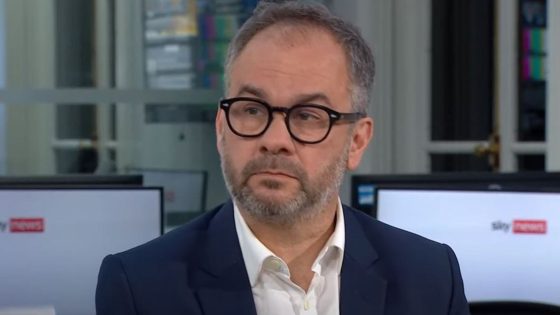Taxes help fund crucial public services, such as education, health care, and infrastructure. However, Scott Galloway, a renowned professor of marketing at NYU Stern School of Business, believes that if you want to build wealth, you should lower your tax bill by as much as possible.
“Tax avoidance is a key skill to building wealth,” he said on Steven Bartlett’s “The Diary of a CEO” podcast.
Galloway then made a striking comparison: “If you’re a prisoner of war, you have an obligation to escape. If you’re trying to build wealth, you have an obligation to pay as little tax as possible. Do it legally.”
He emphasized that minimizing taxes is a common practice in the business world.
“Every organization, every corporation does this to the hilt — and so should you,” he suggested, adding that he would support candidates who implement an alternative minimum tax. He also stressed the need to raise taxes on corporations.
Tactic 1
Curious, Bartlett asked Galloway about the specific tax strategies employed by the wealthy.
“First and foremost, it’s you buy stocks, you never sell them, you borrow against them,” Galloway responded.
He then explained how this strategy works.
“You own $100 in Amazon stock. You need money to buy something. Instead of selling the stock, and let’s say it’s gone up 50%… You would have to realize a capital gain and pay long-term capital gains [tax] on that $50 gain. No, just borrow against it and let the stock continue to grow. And you pay a little bit of interest, hopefully from your current income. But basically it’s invest, borrow against it and die. Put it into a trust and then pass it on to your kids,” he explained.
Indeed, this strategy allows the wealthy to leverage their assets while avoiding immediate tax liabilities. By borrowing against their investments, they can access the necessary funds without triggering a taxable event, as gains are only taxed when realized through a sale.
This approach also enables continued growth of assets. The interest paid on the borrowed amount is often minimal compared to the potential tax burden of selling off investments, making this a highly effective method for maintaining and growing wealth over time.
Tactic 2
Galloway also highlighted a strategy he refers to as “state arbitrage,” which essentially involves relocating to a state with more favorable tax laws.
California and New York, for example, have high state income taxes, while states like Texas and Florida have no state income tax. According to Galloway, this disparity allows individuals to choose their state of residence based on favorable tax conditions, significantly impacting their financial strategies and long-term wealth accumulation.
He illustrated this point using an example from Amazon founder Jeff Bezos’ decision to move from Seattle, Washington, to Miami, Florida.
“Jeff Bezos just moved to Florida to spend more time with dad. Isn’t that sweet Steven? Isn’t that nice?” he asked rhetorically.
In an Instagram post last November, Bezos explained that his parents had moved back to Miami and that he wanted to be close to them.
Galloway, however, is skeptical of this explanation.
“No, it has nothing to do with his father. Give me a f—ing break,” Galloway said. “He aggregated $160 billion in wealth. He would pay about another 8% or 10% in state taxes in Washington because he’s got to leverage the public school system, the University of Washington, the Seattle-Tacoma Airport, the hospital system.”
In May 2021, Washington Gov. Jay Inslee signed Senate Bill 5096 into law, imposing a 7% tax on any gain in excess of $250,000 from the sale or exchange of stocks, bonds and other investment assets. This new tax went into effect in the state on Jan. 1, 2022.
Reports indicate that by moving to Florida, Bezos could save $600 million in taxes.
But Galloway takes issue with those who move for tax reasons but claim they’re doing it because of politics.
“In the U.S. you’re allowed to peace out to Texas or Florida and pay no income tax. So all the people s—posting California or New York, show me someone who all of a sudden can’t handle San Francisco politics, I’m going to show you someone who needs to recognize a capital gain and has all of a sudden decided they like Texas politics. It’s very disingenuous,” he said.
This article provides information only and should not be construed as advice. It is provided without warranty of any kind.
Source Agencies


